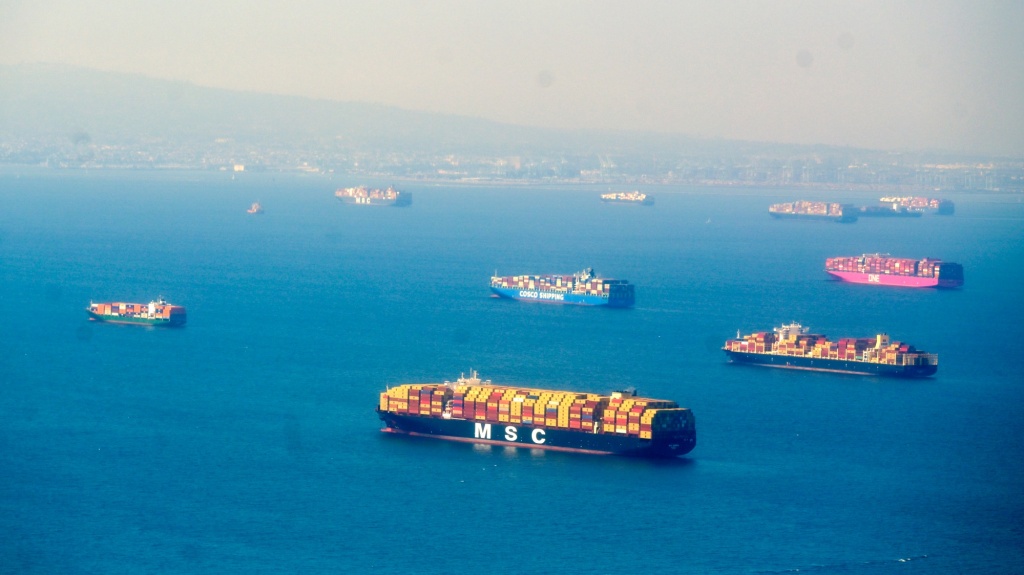The ports of Los Angeles and Long Beach — along with three other California seaports — will receive a one-time $27 million allocation from the state budget to develop a shared data system aimed at improving the flow of goods, an attempt to tackle some of the logistics challenges that emerged during the pandemic and subsequent supply chain crisis.
Other participating ports that signed the memorandum of understanding are Oakland, Hueneme and San Diego.
The MOU outlines an agreement among the five ports to jointly advance computerized and cloud-based data interoperability, with a common goal of supporting improved freight system resilience, goods movement efficiency, emissions reduction, and economic competitiveness, a state news release said.
“Sharing vital shipping data will reduce delays and aid the entire goods movement industry from the docks to doorsteps,” said Port of Long Beach Executive Director Mario Cordero. “By working together, California’s ports can enable end-to-end visibility and connectivity across the supply chain.”
The agreement for the California Port Data Partnership was signed Wednesday, April 26, in Sacramento.
“Data was essential to navigating supply chain disruption,” Port of Los Angeles Executive Director Gene Seroka said. “Analytics from that data allows us to see around corners, which is not just a competitive advantage, it’s now a public necessity.”
The Port of Los Angeles has been proactive on that front and its website now features a Cargo Operations Dashboard that tracks cargo, trucking, terminal and vessel activity in real time.
The port even rolled out its cloud-based Port Optimizer before the pandemic, in 2017. Updates were made during the pandemic and since, with features frequently added.
It was a first-of-its-kind information portal, according to a port news release, and was “designed to digitize maritime shipping data for cargo owners and supply chain stakeholders through secure, channeled…
Read the full article here







